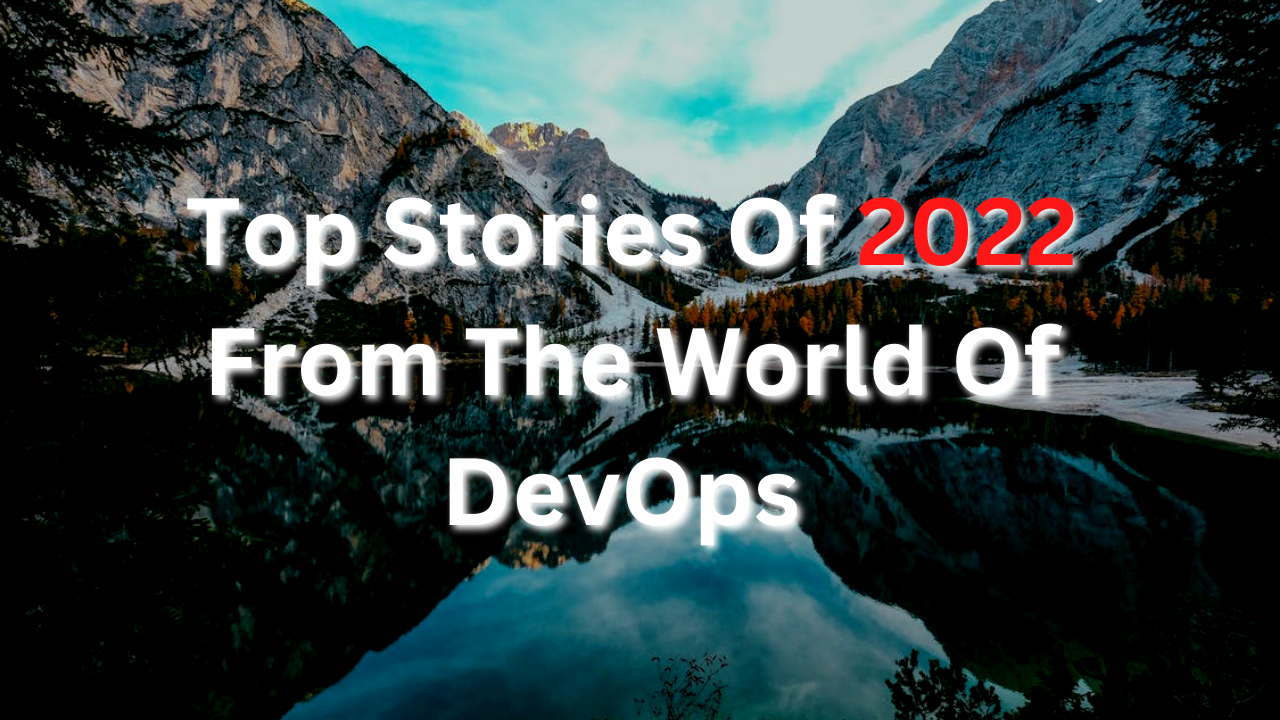
Top Stories Of 2022 From The World Of DevOps. Subscribe to get the latest updates on container-native & DevOps news here.
The year 2022 has been a wild ride for everyone. Amidst all the challenges that we have faced globally due to COVID, war, and inflation, it has certainly paved the way for more innovation. It has served as both a challenge and inspiration to create, build, and advance in our lives.
Today, in this last newsletter for 2022, we will talk about the highlights of DevOps this year. Let me ask you, What do you remember when you think of DevOps in 2022?
The top DevOps trends that have caught our attention this year 👉
Incorporation of DevSecOps lifecycle to enhance security for streamlining governance and observability
The primary principle behind DevSecOps is the shift-left philosophy that security should adopt rather than being treated as an afterthought. According to current DevSecOps trends, roughly 40% of businesses perform DAST tests, 50% perform SAST tests, and the remaining 20% scan dependencies and containers.
Enterprises have incorporated the DevSecOps lifecycle to further improve security, one of the major concerns of the digital age. Governance and observability have both been streamlined with it.
Serverless Computing bridging the gap between Development and Operations
The serverless computing strategy has greatly aided the DevOps process. It has effectively closed the gap between development and operations with increased operability. In addition to that, it made it possible for the host to develop, test, and deploy the DevOps pipeline code.
The serverless market is estimated to reach $30 billion by the year 2030. Additionally, more than 50% of enterprises that have cloud-based services have integrated serverless computing into their systems.
Microservice Architecture for improving the Holistic quality of products
Microservice architecture is being extensively used in the IT sector. It has broken down mammoth-sized applications into more manageable pieces that are smaller, thereby successfully simplifying development testing as well as deployment in operations. It has also streamlined the consistent and frequent delivery of software and applications.
AIOps and MLOps optimizing DevOps operations with high-quality and quick releases
MLOps and AIOps play significant roles in DevOps operations, by optimizing them for high-quality and rapid release. MLOps promotes the development of the machine learning system, whereas AIOps aids in automating IT operations and processes. So it is simple to pinpoint the root of issues that hinder operational productivity with AIOps, and simple to optimize operations and boost productivity with MLOps. By 2026, it is predicted that they will grow to be a 40.91 billion dollar organization.
Low-code DevOps approach enhancing development and deployment
Many robust enterprises have adopted a low-code DevOps approach, which has been quite beneficial for teams. Businesses and companies can build applications using low-code platforms without having to learn how to code. This is one of the renowned DevOps trends that has helped speed up the process of development and deployment.
GitOps for infrastructure of automation
GitOps is one of the most popular DevOps trends that has been introduced into the DevOps workflow to control, monitor, and automate infrastructure. To develop, test, and deploy software quickly and as efficiently as possible, it places an emphasis on increasing releases as well as consistent delivery.
Kubernetes as a continuous and autonomous container-based ecosystem
Kubernetes, being a continuous and autonomous container-based integration ecosystem, has enabled developers to scale up or down on resources. It facilitates cross-functional action and ensures that there is minimum deployment downtime. 48% of developers have turned to Kubernetes for container integration.
The next big question is: How does the future look for DevOps?
DevOps has continued to evolve, and mature, and has become an indispensable part of today’s modern software industry. DevOps, along with all of the associated frameworks and technologies, will continue to allow us to do more and do it faster and better.
“DevOps is about building, maintaining, and managing our software and applications. It’s a way of thinking about how we can go faster, be smarter, and achieve better quality. It’s not about a particular tool you use or the role you play on the team, it’s about the fact that you have a team.” - Alan Shimel, CEO, Founder at Techstrong Group
Regardless of what lies ahead for IT firms, the DevOps approach will keep changing and evolving. In order to spearhead important IT transformations that directly support their business objectives and goals, organizations should adopt these DevOps trends.





